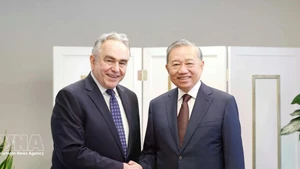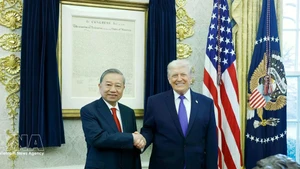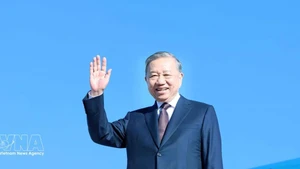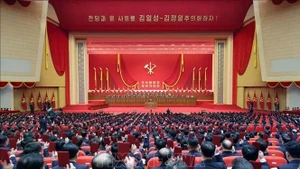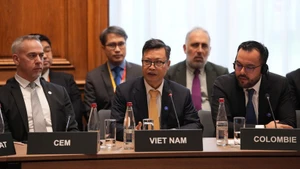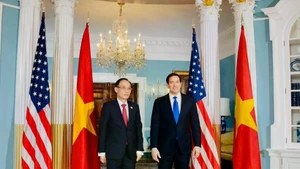During his talks with Timor-Leste’s Minister of Foreign Affairs and Cooperation Bendito dos Santos Freitas in Ha Noi, Trung noted that his country is ready to share experience and best practices, enhance capacity-building, and promote Timor-Leste’s participation in ASEAN programmes on narrowing the development gap.
He also called on Timor-Leste to work proactively with ASEAN in implementing key plans of the bloc, particularly the ASEAN Community Vision 2045.
The two officials agreed to work closely to implement areas of bilateral cooperation, aiming to soon elevate the relationship to a new height. They consented to step up delegation exchanges at all levels, foster party-to-party cooperation, effectively implement the Framework Agreement on Economic and Technical Cooperation, and convene the first session of the Joint Committee at the foreign ministerial level at an early date. Both sides also pledged to sign an agreement on visa exemption for holders of ordinary passports to facilitate people-to-people exchanges.
The ministers agreed to create favourable conditions for trade and market access, not only for rice, Viet Nam’s key export, to Timor-Leste, but also for other products such as seafood and textiles. Trung urged Timor-Leste to further facilitate Vietnamese investment, particularly in sectors where Viet Nam has strengths and Timor-Leste has demand, such as 5G telecommunications, digital solutions for government agencies, and oil and gas exploration.

Both sides also underlined the importance of cooperation in other key areas such as defence and security, education and training, agriculture, fisheries, and tourism, as well as tapping into new trends in digital transformation, innovation, and science and technology to support Timor-Leste’s economic diversification, away from oil and gas and toward sustainable development.
They reaffirmed their commitment to close coordination at multilateral and regional forums, and stressed the importance of maintaining peace, stability, safety, and security of navigation and overflight in the East Sea/South China Sea, in line with international law, including the 1982 United Nations Convention on the Law of the Sea (UNCLOS).
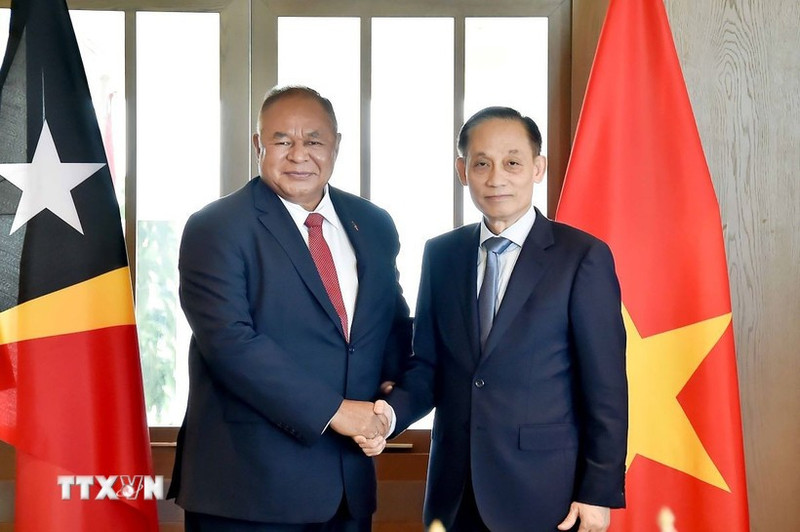
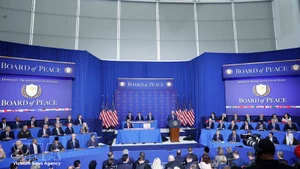
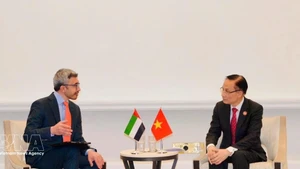
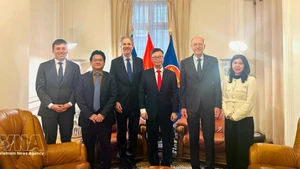
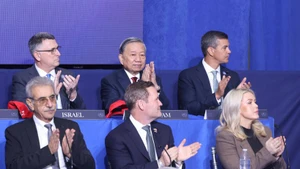
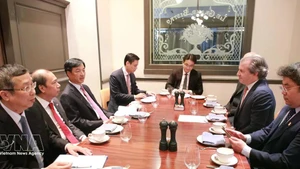
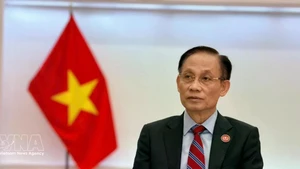
![[In pictures] Party General Secretary To Lam meets US President Donald Trump](https://en-cdn.nhandan.vn/images/dcd63867a0eed4c7753eb4bfb346593abc1ce710dfab8ad1b9aebd75ea6bf930b2ea13e4664779d689ba40aadd80f76d5d05d1208720fd7b0d811ace3a3297321c78cf738400e136e3f2d8790b24d43646e46edbe19517144a88f6ffb0d528f153574a7109328cc0949e4a4c16433c2ff751541639eefe4490518227264cbf8e/vna-potal-tong-bi-thu-to-lam-gap-tong-thong-hoa-ky-donald-trump-8599945.jpg.webp)
